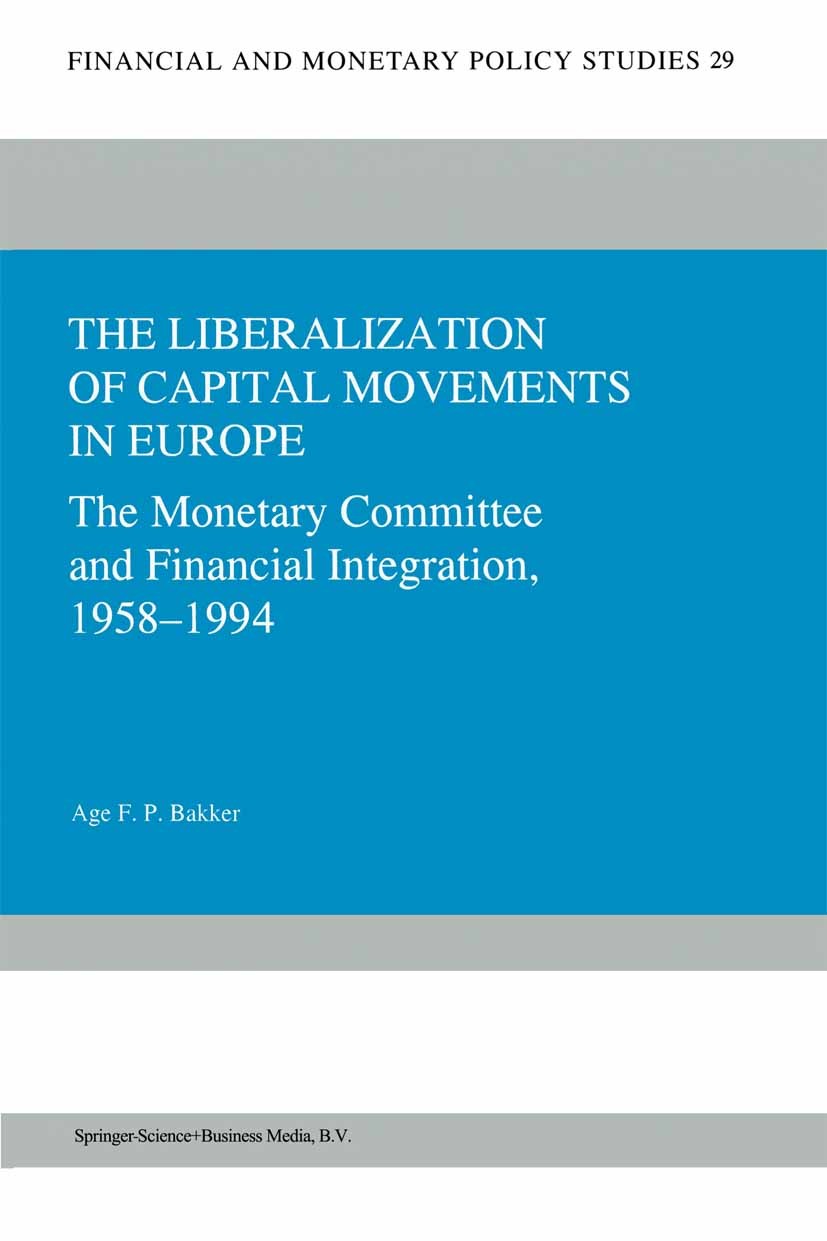| 书目名称 | The Liberalization of Capital Movements in Europe |
| 副标题 | The Monetary Committ |
| 编辑 | Age F. P. Bakker |
| 视频video | http://file.papertrans.cn/914/913036/913036.mp4 |
| 丛书名称 | Financial and Monetary Policy Studies |
| 图书封面 |  |
| 描述 | The member states are facing the choice between either reaping the benefits of increasing integration in a certain area - in this case the capital markets - attended by a significant reduction in national powers of autonomous decision-making and independence, or retaining this national independence enabling them to pursue their own policy objectives with the aid of instruments selected at their discretion. To this question, there is no generally valid answer. The solution is determined by the weight assigned to the benefits, on the one hand, and that assigned to the reduction in national sovereignty, on the other. This, however, is a subjective matter, which is assessed differently in the various countries. OnnoRuding, 1969 1. 1 CAPITAL LffiERALIZATION AND MONETARY UNIFICATION In the 1980s Europe made a leap forward towards the liberalization of capital movements. EEC directives were accepted by all member states obliging them to abolish all remaining exchange controls. This common objective of freedom of capital movements has been consolidated in the Treaty on European Union. Nowadays virtually all restrictions have been lifted. This stands in striking contrast to the state of aff |
| 出版日期 | Book 1996 |
| 关键词 | European Community; European integration; financial policy; monetary policy; monetary union |
| 版次 | 1 |
| doi | https://doi.org/10.1007/978-94-011-0123-3 |
| isbn_softcover | 978-94-010-4059-4 |
| isbn_ebook | 978-94-011-0123-3Series ISSN 0921-8580 Series E-ISSN 2197-1889 |
| issn_series | 0921-8580 |
| copyright | Springer Science+Business Media Dordrecht 1996 |
 |Archiver|手机版|小黑屋|
派博传思国际
( 京公网安备110108008328)
GMT+8, 2026-2-8 02:37
|Archiver|手机版|小黑屋|
派博传思国际
( 京公网安备110108008328)
GMT+8, 2026-2-8 02:37


